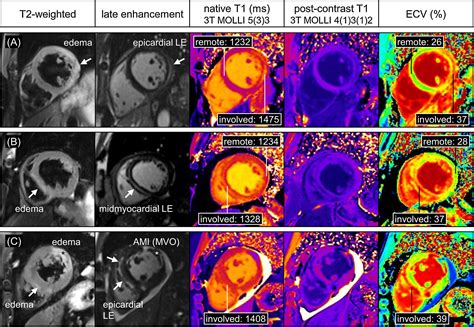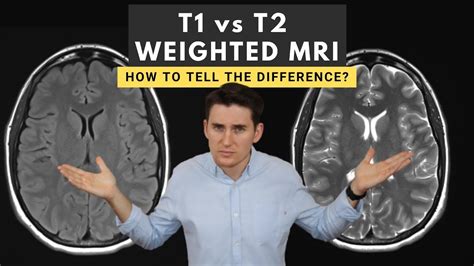lv t1 | ecv t1 mapping guidelines lv t1 Multiple lines of evidence suggest a central role for T1 mapping in detection of diffuse myocardial disease in early disease stages and complements late gadolinium enhancement in .
Delivery. 24/7 Support. 877-945-3877. Best Price. Guaranteed. 30 Days. Return Policy. First Class Dials specializes in Rolex Dials, replacement dials and Rolex Dial .
0 · what is t1 mapping
1 · what is t1 in blood test
2 · t1 mri
3 · t1 mapping process
4 · t1 mapping pdf
5 · t1 mapping myocardial
6 · extracellular volume of t1
7 · ecv t1 mapping guidelines
• 25th July KM643 Catania to Malta departing at 23:25hrs is cancelled. This is an ongoing situation with more information to be updated as and when received. .
Native T1 and ECV help in the differential diagnosis of patients with acute chest pain including acute coronary syndrome, myocarditis and Takotsubo cardiomyopathy and can help in the distinction of acute from chronic infarction (Fig. 3). See moreEndomyocardial biopsy is still the gold standard for confirmation of myocarditis but remains limited by frequent sampling errors reducing diagnostic yield and its invasiveness. In clinical practice, clinical history, laboratory analyses and imaging findings are therefore . See moreAcute but rapidly reversible mid and apical left ventricular (LV) segment akinesia with ballooning and compensatory hyperkinesia of basal segments is . See moreIn chronic MI, the necrotic and oedematous infarct tissue of an acute infarct is replaced by a smaller area of increased extracellular collagen (fibrous scar). Native T1 values are therefore lower and less extensive in chronic MI compared with the acute stage. . See more
Ischaemia triggers the development of cellular oedema. Native T1 reliably detects segmental abnormalities caused by acute myocardial infarction . See more Multiple lines of evidence suggest a central role for T1 mapping in detection of diffuse myocardial disease in early disease stages and complements late gadolinium enhancement in .
In this study, we assessed the prognostic value of LV entropy measured by native T1 in participants with HCM. First, increased LV entropy was associated with SCD or CVD in . Late Gadolinium Enhancement (LGE) is the reference standard for non-invasive imaging of myocardial scar and focal fibrosis and is valuable in the differential diagnosis of ischaemic versus non-ischaemic cardiomyopathy. Diffuse .

gucci premiere dress
Multiple lines of evidence suggest a central role for T1 mapping in detection of diffuse myocardial disease in early disease stages and complements late gadolinium enhancement in visualization of the regional changes in common advanced myocardial disease.In this study, we assessed the prognostic value of LV entropy measured by native T1 in participants with HCM. First, increased LV entropy was associated with SCD or CVD in participants with HCM, and the relationship was maintained even in . To evaluate myocardial fibrosis in patients with nonobstructive HCM and no LGE by using native myocardial T1 mapping and ECV fraction and to study their relationships to left ventricular (LV) function and LV hypertrophy.For example, left ventricular (LV) myocardial T1 is prolonged in valve disease, including aortic stenosis and mitral regurgitation, relative to healthy controls . T1 is elevated in both light-chain and transthyretin variants of cardiac amyloidosis (7,17) .
Native T1 was an independent discriminator between HCM and hypertension, over and above extracellular volume fraction, LV wall thickness and indexed LV mass. Native T1 was also useful in separating G+P− subjects from controls.Concentric LVH subjects had elevated native T1 values (1054±41 ms) compared with those with LV remodelling (1029±45 ms), normal LV (1031±35 ms) and controls (1024±41 ms) . These findings for native T1 and ECV persisted after correction for covariates ( table 4 ).Key points. Cardiac MRI T1, T2, and T2* parametric mapping techniques allow both visual and quantitative myocardial assessment, detecting focal and global tissue changes. Native T1 and extracellular volume values are increased in the setting .The T1 relaxation time, a measure of how fast the nuclear spin magnetization returns to its equilibrium state after a radiofrequency (RF) pulse in the MRI scanner, is a key source of soft tissue contrast in MRI.
Native T1 times (T1) by cardiac magnetic resonance have been shown to be a surrogate marker of diffuse myocardial fibrosis. The objective was to quantify native T1 in children post-rTOF and to evaluate their relationship with surgical, imaging, and clinical factors.
Late Gadolinium Enhancement (LGE) is the reference standard for non-invasive imaging of myocardial scar and focal fibrosis and is valuable in the differential diagnosis of ischaemic versus non-ischaemic cardiomyopathy. Diffuse .
Multiple lines of evidence suggest a central role for T1 mapping in detection of diffuse myocardial disease in early disease stages and complements late gadolinium enhancement in visualization of the regional changes in common advanced myocardial disease.In this study, we assessed the prognostic value of LV entropy measured by native T1 in participants with HCM. First, increased LV entropy was associated with SCD or CVD in participants with HCM, and the relationship was maintained even in . To evaluate myocardial fibrosis in patients with nonobstructive HCM and no LGE by using native myocardial T1 mapping and ECV fraction and to study their relationships to left ventricular (LV) function and LV hypertrophy.For example, left ventricular (LV) myocardial T1 is prolonged in valve disease, including aortic stenosis and mitral regurgitation, relative to healthy controls . T1 is elevated in both light-chain and transthyretin variants of cardiac amyloidosis (7,17) .
Native T1 was an independent discriminator between HCM and hypertension, over and above extracellular volume fraction, LV wall thickness and indexed LV mass. Native T1 was also useful in separating G+P− subjects from controls.
Concentric LVH subjects had elevated native T1 values (1054±41 ms) compared with those with LV remodelling (1029±45 ms), normal LV (1031±35 ms) and controls (1024±41 ms) . These findings for native T1 and ECV persisted after correction for covariates ( table 4 ).Key points. Cardiac MRI T1, T2, and T2* parametric mapping techniques allow both visual and quantitative myocardial assessment, detecting focal and global tissue changes. Native T1 and extracellular volume values are increased in the setting .The T1 relaxation time, a measure of how fast the nuclear spin magnetization returns to its equilibrium state after a radiofrequency (RF) pulse in the MRI scanner, is a key source of soft tissue contrast in MRI.
what is t1 mapping

Have you ever wondered what famous historical figures actually looked like today in real life? Sure, we have plenty of painted portraits to get a general idea. But .
lv t1|ecv t1 mapping guidelines


























